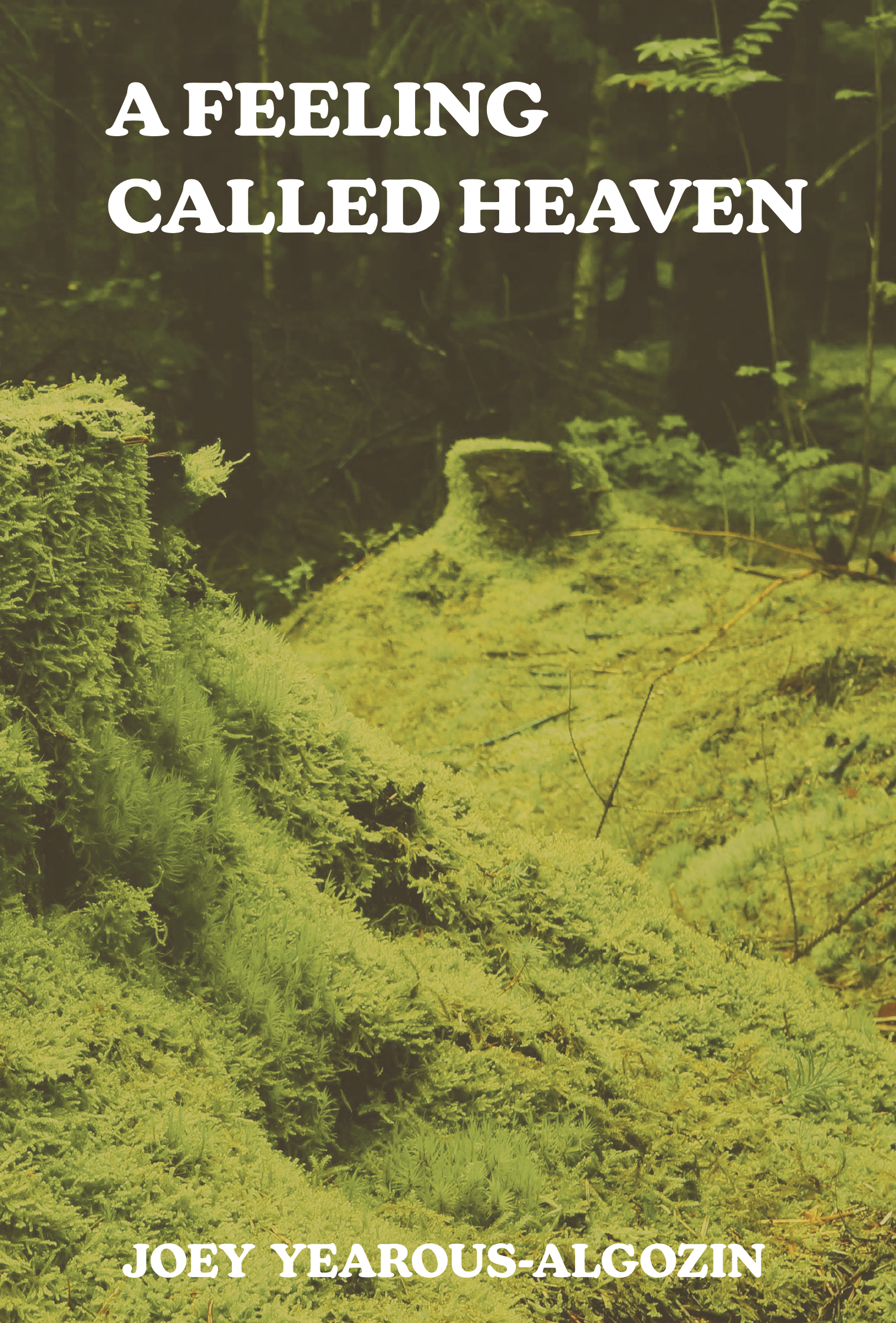Adopting the role of a death doula or New Age religious leader, and drawing inspiration from the Theater of the Absurd, author Yearous-Algozin prompts readers to accept the already occurring end time. A Feeling Called Heaven oscillates between grief and humor as it imagines the nonhuman world that will grow from the ruins of this one, cultivating a sense of presence and intimacy with the inevitable destruction of our global environment.
Reviews
Through its radical acceptance, A Feeling Called Heaven teaches an important lesson about pausing, being present, and deeply listening, both inside and outside ourselves. Perhaps, by engaging in this practice, we can commune with the resonant angels, or “a pod of dolphins…framed by purple flames.”
A Feeling Called Heaven is a logical reminder of our looming extinction, but with a peaceful sense of community, not a panic. If ever you begin to feel uneasy about a sudden apocalypse or slow decline, this steady poetic heartbeat will calm your nerves and almost make you look forward to our collective harmonious finale.
I read A Feeling Called Heaven as an exercise in relational aesthetics, similar to a guided meditation or a Pauline Oliveros Deep Listening exercise. While in the text’s suggestive state, the drone of annihilation is more or less audible depending on what else punctuates the soundscape. While I am wary of framing extinction as the immanent affect (rather than concentrating on destroying the mechanisms that cause it), the irony of this defeatism that A Feeling Called Heaven represents is familiar and felt by many, including myself…
A Feeling Called Heaven introduces the possibility of a queer future now, through the death of the self by way of poetry, which is inherently communal. Through expert attention to the present, Yearous-Algozin’s poetics push us forward, towards the end of the world, towards a feeling called heaven.
While the apocalypse itself feels foreboding, this long poem underscores the joy of the world’s persistence… A Feeling Called Heaven offers a hopeful refusal of the apocalyptic depression that accompanies many poems on the environment.
Yearous-Algozin has written a book that offers a nullification of the creative process, an anti-inspiration to take the pause and escape the creative act; unlike any other book I have read, A Feeling Called Heaven positions itself as a rational counterpoint to tangible production and artistry.
Listen to the audiobook of A Feeling Called Heaven, as read by Diana Hamilton!
A Feeling Called Heaven exists somewhere between dream, irony and ecopoetic anti-capitalist treatise (not unlike Ryan Fitzpatrick’s 2023 collection Sunny Ways). Formally, the collection reads as a very long poem (under the heading ‘for the second to last time’) followed by a shorter long poem (‘a closing meditation’), and it fixates on what it seems all contemporary poets are required to reckon with in their work: impending apocalypse and humanity’s role therein.
